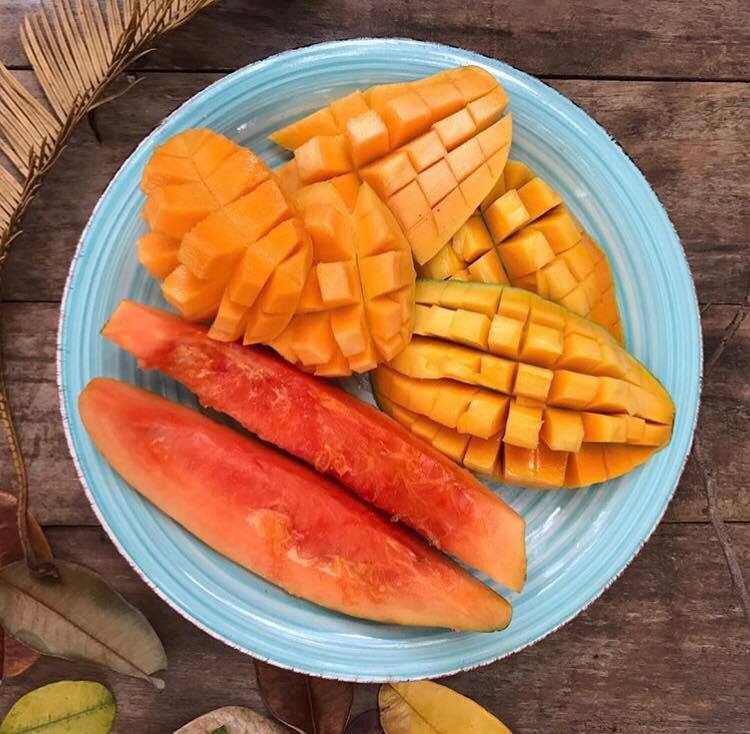The Two Faced Diet
The word DIET can mean different things across languages, peoples, and places. This is something I have come to realize, especially spending my summer at home in the Philippines.
I cook often, finding my recipes online through amusing Tasty videos, complicated Pinterest recipes, and my occasional binge watching of MasterChef. I also eat out, most often at Filipino Carendirias (Canteens) where unlimited rice is always a possibility, the Thai Restaurant a few blocks away from my house (Patcharawan), Japanese restaurants, Chick-Fil-A when I’m back in America, and dozens of other places. Overall, I would say I have a very colorful and balanced diet.
I may need to clarify what I mean when I say diet. When I utter the word “diet” I am referring the type of food I usually eat, not the other word “diet” where a person restricts themselves to certain foods or the amount of food they eat, like “oh, I’m on a diet.”
This word diet has especially intrigued me here in the Philippines, where it generally has one distinct meaning; you are denying yourself food. The predominant diet of Filipinos mainly consists of a lot of white rice and ulam (meat or vegetable dish paired with the rice). It’s not the healthiest diet in the world, but it does fill your tummy. So when Filipinos want to lose weight, they go on a diet. This means eating way less rice, or often no meal at all. The amount of instances I have heard people say that they need to skip a meal because they are on “diet” is ten times more than the number of years I have been in school.
Although I am Filipino and born and raised in the Philippines, I have found myself eating an array food on a daily basis, and not just rice for breakfast, lunch, and dinner. This is especially true due to my multi-cultural upbringing, being Filipino-American. Don’t get me wrong, a typical Filipino breakfast like spam, eggs, and rice is definitely on my top five list, but sometimes I like to oatmeal with some fruit, or a bagel, or some pancakes.
The conversation about “diet” actually came up recently with my Physical Therapist. While I was pedaling the exercise bike in the workout room at the hospital, I had mumbled that I was hungry.
“What did you eat today?” My PT asked.
“I had some oatmeal for brunch,” I responded.
“Oh oatmeal,” he said, “dieting huh?”
A huge pregnant pause suddenly filled the room. He probably thought that I zoned out or something from the way I was looking at him after his comment.
Did he actually think that I was suffering eating that oatmeal? Little did he know. It happened to be fantastic. The fruit was overflowing, the chocolate chips were melting on the steaming hot oatmeal, and the local Philippine honey was as sweet as could be.
It dawned on me right there that there was a serious stigma against the word ‘diet.’
“Just because I had oatmeal and not rice, doesn’t mean I’m dieting” I said to him. Oatmeal for his information is part of the varied diet I have, another food option that I habitually eat, not because I am on a diet but because it is part of my diet.
These last few years “my diet” has consisted of a lot of fruits, vegetables, and complex carbohydrates. I have learned that a diet is a lifestyle. A proper holistic diet can control how I feel and how much I get sick. Don’t get me wrong though I have my fare share of guilty pleasure foods that I often eat. However, eating a healthy diet has been especially cheap and easy while living in the Philippines.
It’s a shame that the word diet is often associated with something negative. But actually, a proper diet can be delicious, creative, and healthy. Diet also does not have to have one meaning and the term dieting does not have to mean barely eating. The word “diet” should not be consumed by the idea that one is trying to lose weight or reach a certain goal, but rather it should signify what we put into our bodies on a day to day basis.
Just something to chew on the next time you hear someone say they’re on a “diet.”
